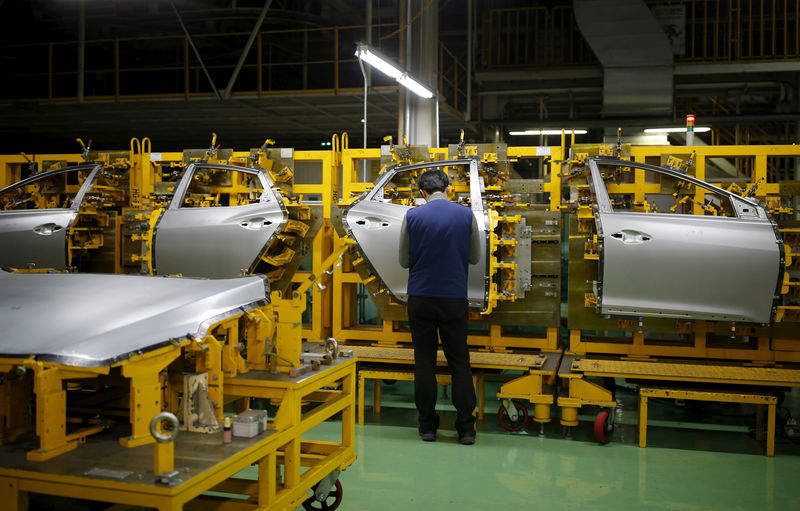SEOUL (Reuters) - South Korea's factory activity shrank in August but at a slower pace than in July, a private sector survey showed on Monday, as global trade frictions and an escalating diplomatic dispute with Japan hit demand for the country's products.
The headline Nikkei/Markit purchasing managers' index (PMI) rose to 49.0, from 47.3 in July, but remained below the 50-point level that separates contraction from growth for a fourth straight month. The majority of sub-indexes also continued to decline, but at a slow pace.
The sub-index for new export orders rose to 48.6 from 45.5 in July, the slowest decline seen since April, but the 13th straight month of contraction. Survey respondents reported cooling demand from Germany, China, Japan and parts of Southeast Asia.
Total new orders also shrank for a 10th successive month, due to reduced demand for goods both at home and abroad.
Though some firms in the electronics industry launched new products, those failed to offset the cut back from elsewhere, extending the contraction for a 10th month.
"While the pick-up in the headline index suggests that pressures on South Korean manufacturers have abated to an extent, underlying data still portray a deeply challenging environment," said Joe Hayes, economist at IHS Markit, which compiles the survey.
South Korea, Asia's fourth-largest economy, has been struggling with sluggish exports and weak inflation, while the U.S.-China tit-for-tat tariff dispute and a brewing trade row with Japan pose increasing growth risks.
Gross domestic product swung back to growth in the June quarter after a shock contraction in the previous period, but that was mostly due to increased government spending, not a pick up in demand.
The employment sub-indexes showed factories cutting staff at the fastest pace in six months to deal with reduced sales and price pressures driven by a weaker won , increased raw material and payroll costs.
South Korean manufacturers restored confidence marginally in August after July's future output index fell below the threshold for the first time since sentiment was tracked in 2012. But the bitter feud between the nation and Japan and faltering economy still weighed on the business sentiment.

On Friday, the Bank of Korea kept the benchmark interest rate unchanged at 1.50%, which followed a surprise rate cut in July, but is widely expected to ease at the next meeting in October.